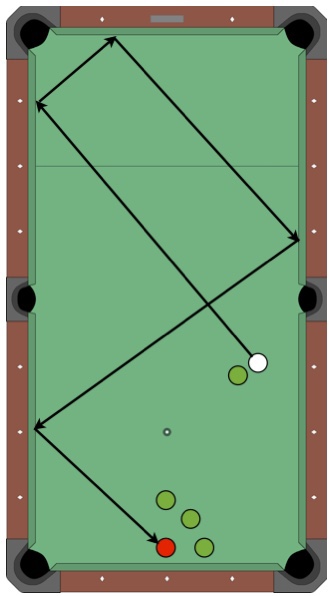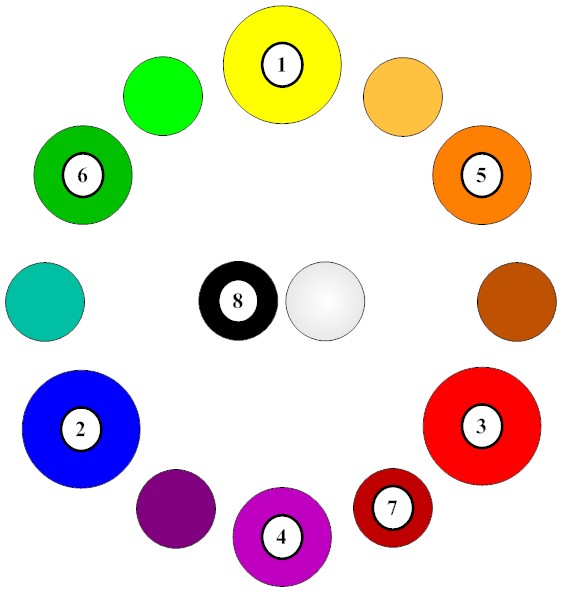
As with the one-rail and two-rail systems, the three-rail (or more) system works very similar. Use a known reference line, then use a spot in the distance for any cue ball position that can hit the same starting rail. For 3+ rails the distance to the spot becomes less and less of an importance.
You can pick a spot varying many feet and still have good accuracy on the shot. As a rule of thumb, think one-table away for one-rail kicks, two-tables away for two-rail kicks, and three or more tables away for 3+ rail kicks.

Normally this shot would come across as very difficult, but with a little knowledge we can make this a high percentage shot.
Billiards vs pool
‘Billiards’ and ‘pool’ are two words that are often interchanged because they refer to games played on similar-looking tables with a cue and balls. However, what many people may not realize is that they actually have different meanings—and some striking differences in table features!
In its original use, billiards refers to any type of cue sport, including carom billiards, pool, and snooker. On the other hand, pool specifically refers to a game played on a pool table.
Traditionally, billiards tables do not have pockets. As such, the various games are referred to as carom billiards, or pocketless billiards. In contrast, pool tables (or pocket billiards tables) have six pockets, including pockets in each corner and one in the middle of each long side.
































